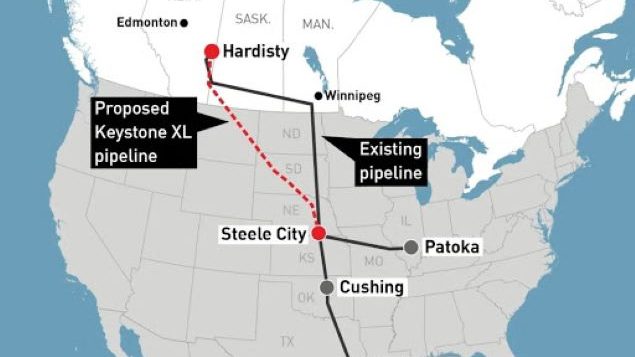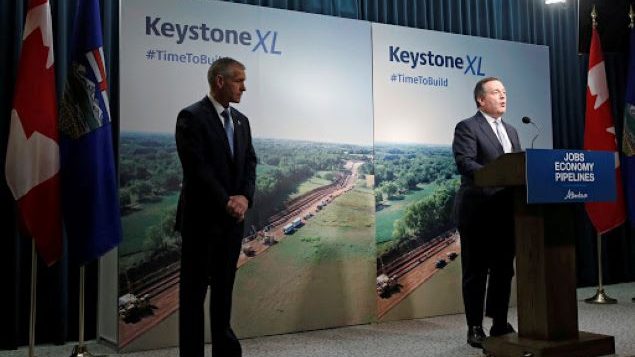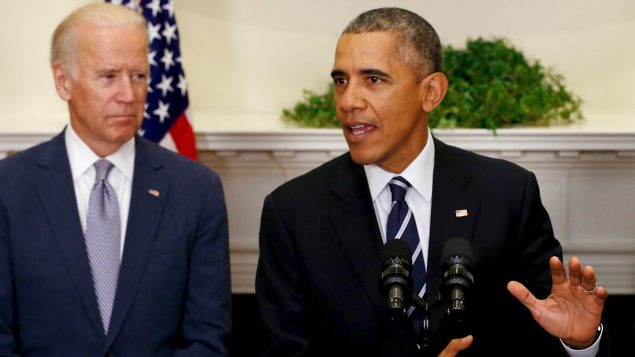The long and winding saga of the Keystone XL pipeline has taken another turn.
The presumptive Democratic candidate for president of the United States, Joe Biden, says he will cancel the project if he is elected.
Biden made the announcement in a written statement on Monday.
His staff said he would withdraw the permit issued by President Donald Trump.

Opponents of the Keystone XL pipeline protest in Nebraska in 2017. A federal judge in Montana has blocked construction of the US$8-billion Keystone XL pipeline to allow more time to study the project’s potential environmental impact. (THE CANADIAN PRESS/Nati Harnik)
The Trump administration is currently appealing a ruling from a federal judge in Montana that blocked construction of the pipeline because of an insufficient environmental review.
Trump last year signed a cross-border construction permit for Keystone XL, taking it out of the State Department’s hands after years of legal wrangling over the department’s environmental review of the planned route.
Biden’s opposition raises the stakes for TC Energy’s efforts to start construction on the cross-border portion of the pipeline this year that would carry 830,000 barrels of crude oil from Canada to the U.S.
The pipeline has long been a source of controversy.

The Keystone XL pipeline would bring oil from Hardisty, Alta., to Steele City, Neb. (CBC/Natalie Holdway)
Environmentalists hate it while Canada’s oil industry, centred in Alberta, sees it as a way to transmit about a fifth of the oil Canada sends to the U.S. daily.
In March, TC Energy Corp, Keystone’s owner, gave the go-ahead for construction of the US$8-billion project.
TC Energy said it was moving forward with an investment of US$ 1.1 billion from the Alberta government, which says the almost 2,000-kilometre project will create more than 1,400 direct and 5,400 indirect jobs in the province during construction and C$30 billion in tax and royalty revenues over the next 20 years.

TC Energy CEO Russ Girling and Alberta Premier Jason Kenney deliver a statement on the construction of the long-delayed Keystone XL crude oil pipeline project, in Calgary, Alberta, Canada March 31, 2020. (REUTERS/Todd Korol)
The pipeline is designed to carry crude from Hardisty, Alberta to Steel City, Nebraska where it will connect with TC Energy’s existing facilities.
From there, the crude heads south to the Gulf of Mexico.
The US$8-billion expansion has long been a central element of efforts in Canada to expand export markets for Canadian fossil fuel but has been beset by delays, protests and injunctions almost since its inception.
It became a major flashpoint in the fall of 2011 when major protests were held in both Ottawa and Washington.
With files from CBC News (Alexander Panetta, Katie Simpson), The Canadian Press, The Associated Press







For reasons beyond our control, and for an undetermined period of time, our comment section is now closed. However, our social networks remain open to your contributions.